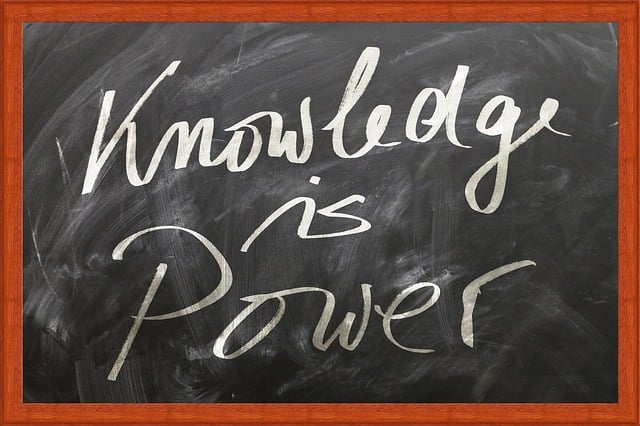In Karachi, a city renowned for its rich cultural diversity, inclusive education is essential to reflect and celebrate this unique mosaic. Teachers play a pivotal role in creating welcoming classrooms that cater to various learning styles, break down stereotypes, and integrate cultural relevance. This involves adapting teaching methods, promoting active student engagement, and collaborating with families. By embracing multisensory approaches, storytelling, and diverse assessment formats, educators ensure every learner feels embraced, overcoming socio-economic disparities and overcrowding challenges through community involvement and support systems. The ultimate goal is to create equitable learning spaces that enhance the educational journey for all students in Karachi's dynamic environment.
In Karachi, Pakistan, creating inclusive classroom environments is paramount given the city’s diverse student body. This article explores strategies for fostering equitable learning spaces from a cultural perspective specific to Karachi. We delve into practical tactics for educators, engaging families and communities in inclusive practices, adapting curricula and assessment methods for varied learners, and overcoming challenges through robust support systems. Discover how these approaches can transform education in Karachi’s vibrant landscape.
- Understanding Inclusive Education in Karachi: A Cultural Perspective
- Creating an Equal Learning Space: Practical Strategies for Teachers
- Engaging Families and Communities for Inclusive Practices
- Adapting Curriculum and Assessment Methods for Diverse Learners
- Overcoming Challenges: Building Support Systems in Karachi Schools
Understanding Inclusive Education in Karachi: A Cultural Perspective

In Karachi, a vibrant and diverse metropolis, inclusive education is not merely a pedagogical concept but a reflection of the city’s cultural mosaic. The unique blend of various ethnic, religious, and socio-economic groups in Karachi offers both challenges and opportunities for creating truly inclusive classroom environments. Understanding this cultural perspective is crucial to fostering an educational system that welcomes and supports every student.
Karachi’s rich tapestry of traditions and beliefs demands a nuanced approach to education. Teachers play a pivotal role in navigating this diversity, ensuring that classrooms become spaces where every student feels seen, heard, and valued. By embracing cultural sensitivity and promoting inclusive practices, educators can break down barriers, challenge stereotypes, and create an environment conducive to learning and personal growth for all students in the bustling urban landscape of Karachi.
Creating an Equal Learning Space: Practical Strategies for Teachers

In the diverse and vibrant city of Karachi, creating an equal learning space in classrooms is paramount to fostering inclusivity. Teachers play a pivotal role in ensuring every student feels valued and supported. One practical strategy is adapting teaching methods to accommodate different learning styles. This might involve incorporating visual aids, hands-on activities, and varied assessment formats to cater to visual, kinesthetic, and auditory learners respectively. Additionally, teachers can promote an inclusive environment by encouraging active participation from all students, ensuring clear and accessible communication, and using inclusive language that respects diverse backgrounds and identities.
Another effective approach is incorporating cultural relevance into lesson plans. By integrating local stories, traditions, and historical events specific to Karachi, teachers create a sense of belonging for students from various ethnic and cultural backgrounds. This not only enhances learning but also strengthens the community bond within the classroom. Moreover, providing inclusive resources and accommodations, such as offering extra support for students with disabilities or those learning Urdu as a second language, is crucial for creating an equitable learning environment in diverse Karachi classrooms.
Engaging Families and Communities for Inclusive Practices

In the vibrant and diverse city of Karachi, creating inclusive classroom environments requires a collaborative effort that extends beyond school walls. Engaging families and communities is a powerful strategy to foster an atmosphere where every student feels valued and supported. By involving parents and caregivers in the educational journey, teachers can leverage their unique insights and connections to create a more welcoming learning space. This collaboration can take various forms, such as organizing community meetings, workshops, or cultural events that celebrate the rich tapestry of Karachi’s residents.
Through these initiatives, families become active participants in shaping inclusive practices. They gain a deeper understanding of diverse learning needs and contribute their perspectives, ensuring that educational strategies are tailored to meet the unique requirements of every student. This two-way communication enriches the overall educational experience, fostering a sense of belonging and mutual respect within the classroom and the broader community in Karachi.
Adapting Curriculum and Assessment Methods for Diverse Learners

In an inclusive classroom in Karachi, adapting curriculum and assessment methods is paramount to cater to a diverse range of learners. This involves recognizing and embracing different learning styles, cultural backgrounds, and abilities within the student body. Teachers can achieve this by incorporating various teaching techniques such as multisensory learning activities, visual aids, and hands-on experiences to engage all students effectively. For instance, incorporating multimedia resources for history lessons or using storytelling in science education can benefit both visual and auditory learners alike.
Assessment methods should also be tailored to ensure fairness and precision. Instead of relying solely on written exams, teachers in Karachi can utilize alternative assessments like project-based tasks, presentations, and portfolio evaluations. These methods allow students to demonstrate their understanding and skills in multiple ways, accommodating those who might struggle with traditional testing formats. By embracing these adaptations, classrooms in Karachi can foster an environment that truly values and supports every learner’s unique journey.
Overcoming Challenges: Building Support Systems in Karachi Schools

In the diverse and vibrant city of Karachi, creating inclusive classroom environments presents unique challenges. Schools here often face overcrowding, limiting resources, and a range of socio-economic backgrounds among students. These factors can make implementing inclusive practices more complex. Overcoming these obstacles requires a collective effort from educators, administrators, and parents.
Building support systems is key to fostering an inclusive atmosphere in Karachi schools. This involves professional development programs for teachers to enhance their understanding of diverse learning needs. Collaboration between schools and community organizations can also provide additional resources and create a network of support for students. Additionally, involving parents through awareness campaigns and participation in school events helps build a sense of belonging and encourages active engagement in their child’s educational journey.
In conclusion, fostering inclusive classroom environments in Karachi requires a multifaceted approach. By understanding cultural perspectives, implementing practical strategies for teachers, engaging families and communities, adapting curriculum and assessment methods, and building robust support systems, we can create an equal learning space for all diverse learners. This holistic effort ensures that every student in Karachi receives the education they deserve, paving the way for a more inclusive and equitable future.
